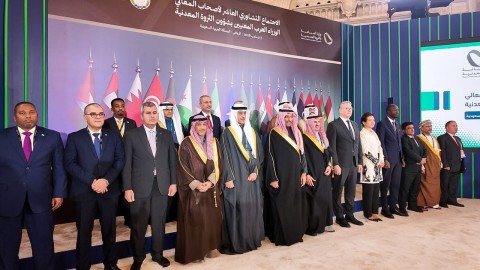Oman will take full control of an oil-trading venture it owns with Vitol Group, the world’s largest independent energy trader, in the latest sign of the rise of state-owned commodities traders.
The Oman Trading International Ltd. venture will be fully owned by the state after it buys from Vitol the 30% it doesn’t already hold, according to people with knowledge of the transaction. Oman had planned since the venture’s start in 2006 to take full control once operations were established and successful, according to the people, who asked not to be identified as the deal is private.
The acquisition reinforces the emergence of a new cadre of state enterprises to buy and sell natural resources. Countries from Saudi Arabia to China are building large government-owned commodity trading groups in direct competition with established houses.
“Saudi Arabia started the trend in the Middle East for state-owned firms getting into trading,” said Tom James, managing director at London-based consultant Navitas Resources. “The big question is really how customers of OTI will perceive the firm without Vitol involved.”
Calls to Oman Oil for comment went unanswered and a media official at Oman’s oil ministry didn’t immediately comment.
State-owned Oman Oil Co. and Vitol trade Omani crude and refined products for the government-owned refinery company, as well as dealing in other regional crudes and fuels. Oman Trading, based in Dubai, handles about 160,000 b/d of crude and about 40,000 b/d of refined products, according to its website.
Saudi Arabian Oil Co., or Saudi Aramco, started its trading unit in 2012 to deal in refined products and petrochemicals. While most other Middle Eastern states use the marketing arms of their state oil companies to buy fuel for domestic demand or to sell excess refined products, Oman Trading and Aramco Trading seek to make a profit dealing with third parties.
Also in the region China Petroleum & Chemical Corp., known as Sinopec, operates a joint venture oil storage facility up the United Arab Emirates coast from Oman, giving it a base to compete for cargoes in the growing Middle East market. Sinopec’s trading arm Unipec is set to use crude oil storage tanks at the facility at the port of Fujairah and the company also regularly wins Yemen’s oil supply tenders.
As Gulf oil producers build new refineries the region is shifting from a net importer of fuels like gasoline and diesel to a net exporter and boosting regional trade.
The increased trade is a factor giving rise to the government-owned firms that are increasingly entering the market to procure and sell commodities directly, bypassing the traditional oil and grain traders such as Glencore Plc, Cargill Inc. and Trafigura Beheer BV, as well as Vitol.
Source: Bloomberg












